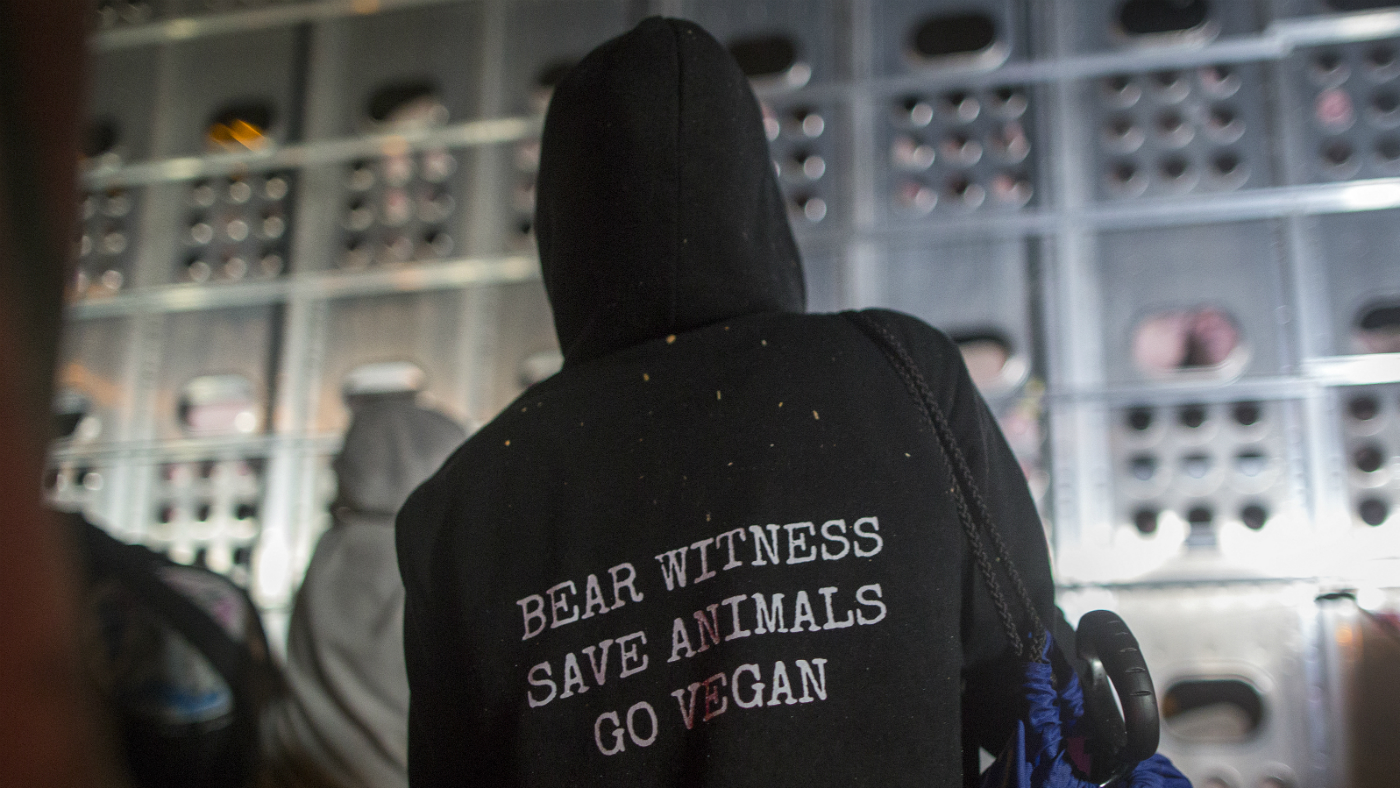Vegan protests: are anti-meat activists going too far?
Australian government threatens action against campaigners behind nationwide disruptions

A free daily email with the biggest news stories of the day – and the best features from TheWeek.com
You are now subscribed
Your newsletter sign-up was successful
Australia’s Prime Minister Scott Morrison has denounced animal rights activists as “un-Australian green criminals” following protests and disruption across the nation.
Morrison lashed out after vegan campaigners “broke into abattoirs and chained themselves up to protest against the meat industry” in New South Wales, Queensland and Victoria on Monday, the BBC reports. Meanwhile, a demonstration in Melbourne resulted in 38 arrests.
The protests were the latest in a series that have taken place across the globe in recent months. Just last week, a court in northern France jailed two anti-meat activists for a string of attacks on butcher’s shops and restaurants.
The Week
Escape your echo chamber. Get the facts behind the news, plus analysis from multiple perspectives.

Sign up for The Week's Free Newsletters
From our morning news briefing to a weekly Good News Newsletter, get the best of The Week delivered directly to your inbox.
From our morning news briefing to a weekly Good News Newsletter, get the best of The Week delivered directly to your inbox.
So are the protesters going too far?
What is militant veganism?
The number of people choosing to live a vegan lifestyle has skyrocketed worldwide in recent years, with a correlating increase in activism.
Although the majority of anti-meat activists are peaceful, the more extreme fringe has orchestrated a “wave of protests against the meat industry, with vegans targeting butchers, abattoirs and farms in an attempt to persuade shoppers to forgo meat”, according to ITV News.
A free daily email with the biggest news stories of the day – and the best features from TheWeek.com
Leading militant vegan group Direct Action Everywhere (stylised as DxE) describes one of its main protesting techniques as so-called open rescue - a practice used by many animal rights organisations. During an open rescue, activists “openly enter farms, usually at night, document the conditions and rescue animals”, says the DxE website.
“We do not hide our identities because we are proud of what we are doing and know that we are taking morally just action,” the site adds. “Being a public face to an investigation breaks down the stereotypes of animal activists as criminals, vandals and terrorists.”
Unsurprisingly, lawmakers take a rather more dim view of the practice. Last May, five DxE activists who broke into Smithfield hog farm in Utah and removed two piglets were charged with felony burglary, rioting and pursuing a “pattern of unlawful activity”.
A Smithfield spokesperson criticised the “blatant inaccuracies and assertions” made by DxE and noted that the group had “violated Smithfield’s strict biosecurity policy to prevent the spread of disease onto our farms”.
DxE insists that such tactics are a justifiable form of peaceful protest. “We are nonviolent in our action, our word and our tone,” the group says. “We aim not to ‘win’ or ‘beat’ people but to bring everyone into our beloved community.”
Does it work?
Modern animal rights activists committing offences such as trespassing and vandalising properties “can provoke a strong and emotive backlash”, says Tani Khara, a PhD student in sustainability at the University of Technology Sydney, in an article on The Conversation.
But it’s “not at all certain this headline-grabbing approach improves animal welfare”, Khara continues, adding that “shock tactics can effectively attract attention and are more likely to be noticed, but they do not necessarily prompt action”.
Some vegans claim that it is the reactions of non-vegans that further perpetuates the cycle of violent crimes.
Writing in The Independent, animal rights campaigner Sarah Gate says that it has “become disturbingly normal” to label active vegans as “extreme”, and that “a public declaration of annoyance at vegans has given people licence to attack them”.
According to academic Khara, in a US study “nearly half of all participants already felt negatively” towards vegetarians and vegans, and “became even more resentful” when they felt that vegetarians and vegans “considered themselves to be morally superior to omnivores”.
Is it justified?
Australian leader Morrison says that such activism is “damaging to farmers’ livelihoods”, and has encouraged farmers who are targeted to take legal action against the “green criminals”.
Shooters, Fishers and Farmers Party leader Robert Borsak went further, describing the protesters as “animal rights terrorists”.
Most vegans also view violence in the name of animal welfare as a step too far.
The Guardian’s Gaby Hinsliff agrees that those “using methods up to and including violence” are an “exception who ruin the reputation of veganism for everyone else”.
However, some commentators taking a more forgiving view.
“Should they invade farms? Probably not,” writes Andrea Macleod in Queensland-based newspaper The Courier Mail. “But the frustration of knowing that animals are dying in this way is overwhelming.”
For Australian lawmakers, at least, the answer is more black and white: any criminal activity by activists is crossing a line.
Queensland lawyer Dan Creevey says that the recent unrest highlights the need for tougher penalties to deter criminal activity against farmers.
“Issuing of fines is inadequate and is a weak deterrent,” Creevey said. “We live in a democratic society. If activists want to protest, they have a right to do so, but there are right ways and wrong ways to do things, and trespassing on land, and impacting businesses, is not the right way.”